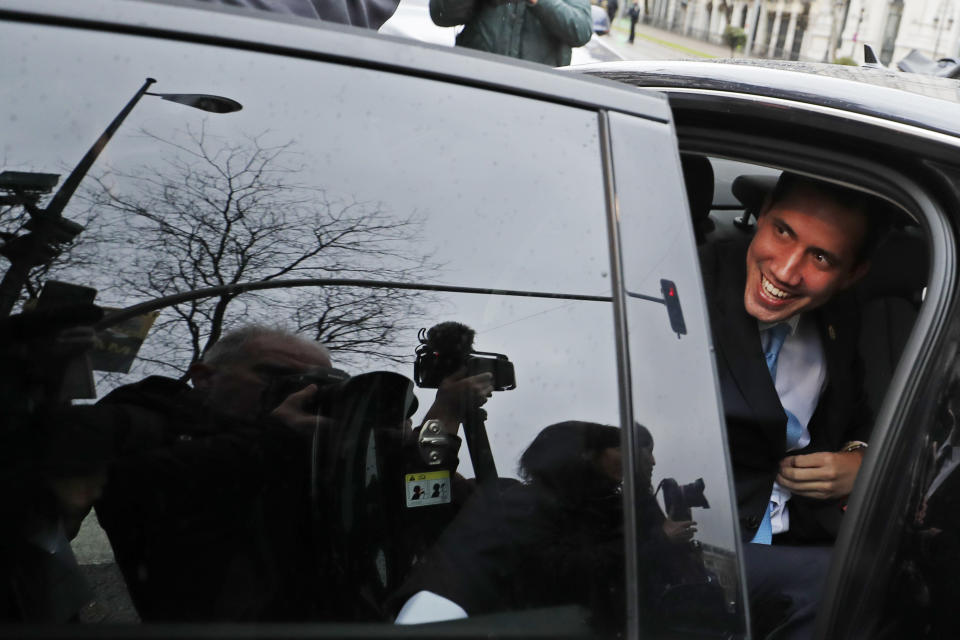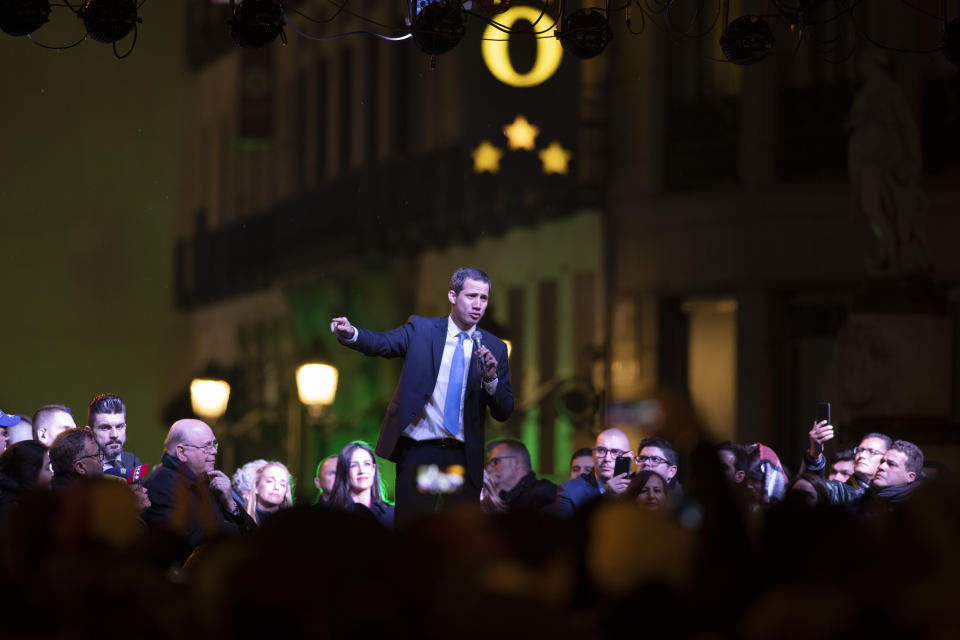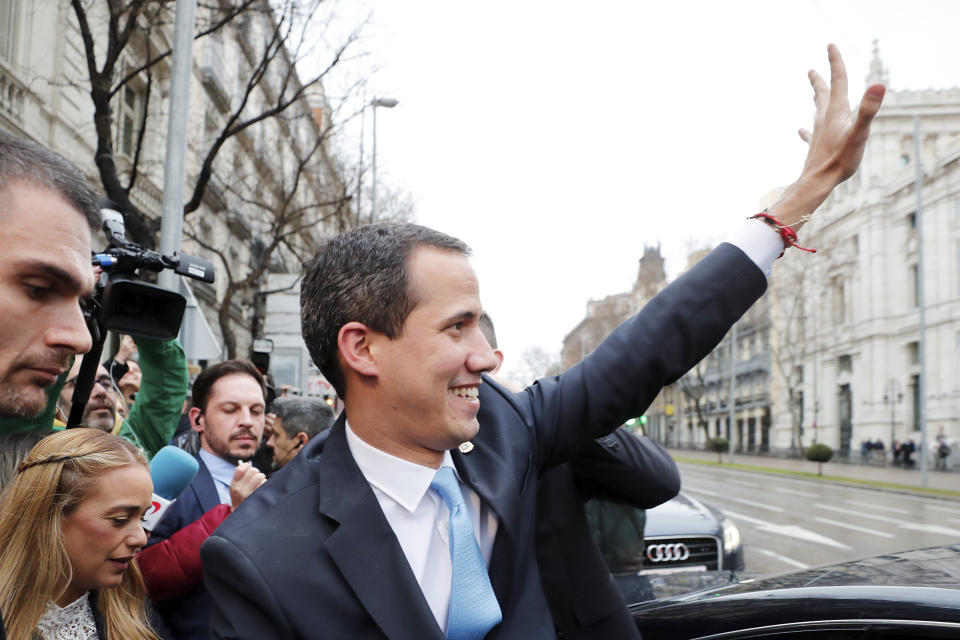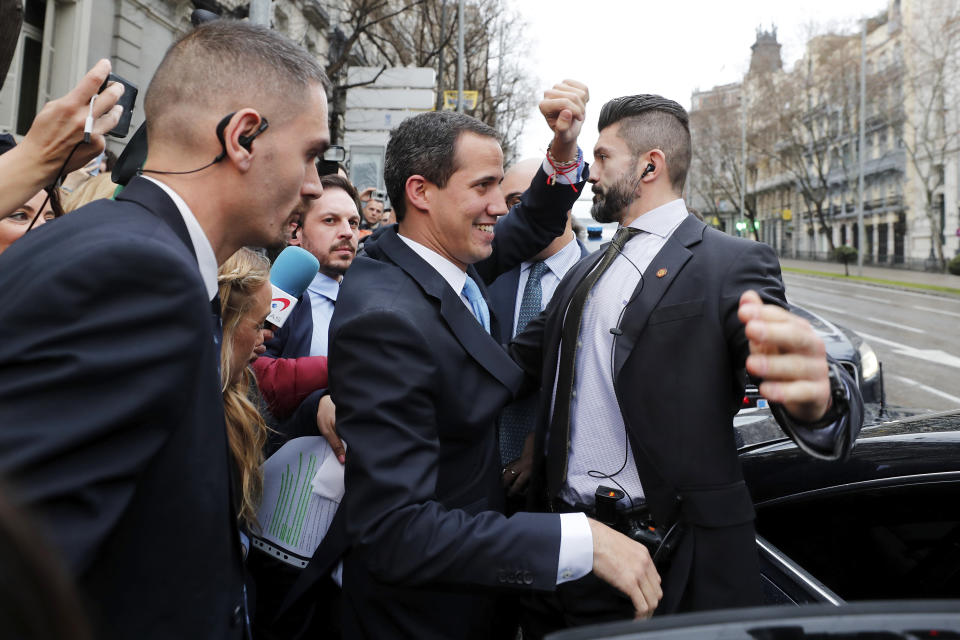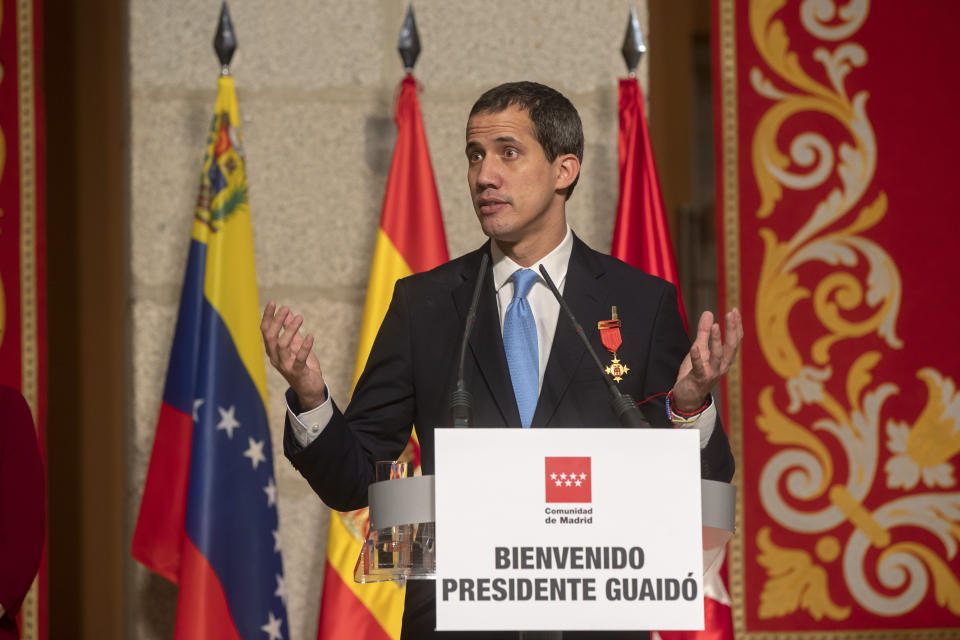Venezuela's Guaidó visits a politically agitated Spain
MADRID (AP) — Juan Guaidó, the man who one year ago launched a bid to oust Venezuelan President Nicolás Maduro, on Saturday paid a visit to Spain, where a thriving community of Venezuelans and a storm among Spanish political parties awaited him.
Venezuela's main opposition leader is on an international tour to bolster support for his U.S.-backed effort to remove Maduro and lead the country until a presidential election deemed to be transparent can be held.
After stops in London, Paris and the Davos Economic Forum earlier this week, where Guaidó was received by the European Union's leadership and heads of government including Britain's Boris Johnson and France's Emmanuel Macron, Guaidó is walking into a kerfuffle in the Spanish capital.
It's his position as a challenger to Maduro's legitimacy that puts Spain in a tricky balancing act.
Despite being one of the nearly 60 countries that last year recognized Guaidó as Venezuela's interim president, Spain's new left-wing coalition has not granted the politician an audience with Prime Minister Pedro Sánchez. Instead, Foreign Minister Arancha González Laya held a brief meeting with the 36-year-old politician.
That has earned Sánchez strong criticism from his political opposition, which includes three parties spanning from the ideological center-right to the far-right. The Socialist leader has governed since earlier this month in partnership with the anti-austerity Unidas Podemos (United We Can) party, whose members have shown strong support for Maduro's government.
But the criticism turned into a full-scale opposition-led offensive against Sánchez after media disclosed this week details of a secretive encounter at Madrid's airport between a member of his Cabinet and Venezuela's vice president, Delcy Rodríguez, who is banned from stepping into EU territory.
Transport Minister José Luis Ábalos, a key figure in Sánchez's Socialist party, first denied the episode, then argued that he had been at the airport last Sunday at midnight on a private visit to welcome Venezuela's Tourism Minister Félix Plasencia, a friend of his who was in Madrid for a tourism fair.
Finally, on Friday, the government changed again the initial account to explain that Ábalos had been compelled to greet Rodríguez and that he had convinced her not to attempt to enter Spain because that would violate EU sanctions.
Although Spanish police sources told The Associated Press that Rodríguez never left the airport and that she technically didn't enter the country, the Spanish government has been in damage control mode over its handling of the episode.
After days of silence, Sánchez addressed the controversy for the first time on Saturday, saying that he had no intention of dismissing Ábalos as the conservative opposition demanded.
“He did everything in his hands to avert a diplomatic crisis. And he succeeded," Sánchez said.
As a powerful ally of Maduro, Rodríguez is on an EU sanction list and barred from entering the territory of any of the bloc's members since mid-2018. Since the first reports of the encounter at the airport appeared in media late on Thursday, neither the Venezuelan vice president nor Maduro's government have publicly commented on the trip.
At the Madrid city hall, Guaidó received the city's Golden Keys from its conservative mayor, José Luis Martínez Almeida.
“There are some who are still attempting to call for moderation and dialogue to keep us disengaged, perhaps answering to their own interests,” the mayor said, in a clear reference to Sánchez's left-wing coalition.
Guaidó thanked the warm reception and said he took it as a “a recognition and a boost to the struggle of millions of Venezuelans."
The Venezuelan politician was expected to lead a march through the center of the Spanish capital demanding the end of Maduro's government and free presidential elections in Venezuela.
Earlier in the morning, dozens gathered at the gates of Spain's Ministry of Foreign Affairs, protesting instead against Guaidó's visit and referring to the politician as “clown” and “puppet” of the U.S.
“No to imperialist interference in Venezuela and Latin America,” read a big banner that also showed support to “Venezuela's people and Nicolás Maduro.”

